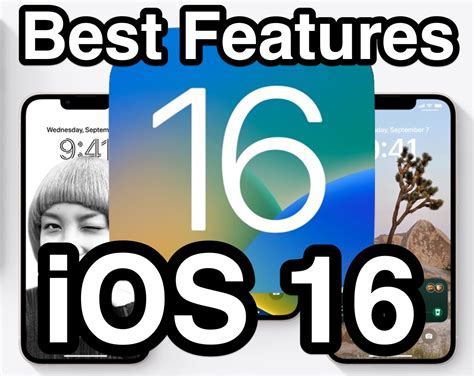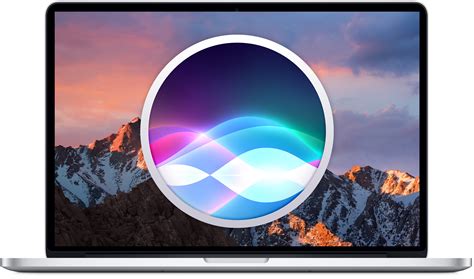In the ever-evolving world of smartphones, two giants have emerged: iOS and Android. While both operating systems have a myriad of features to offer, it is iOS that boasts a distinctive set of functionalities unparalleled by its rival. This article sheds light on the exclusive features that make iOS stand out in the smartphone market.
One of the compelling advantages of iOS lies in its seamless integration with other Apple devices. The ecosystem created by iOS allows users to effortlessly sync their iPhones with iPads, Macs, and Apple Watches. This interconnectedness enables a harmonious experience, ensuring that tasks can be seamlessly transitioned across different devices.
Another remarkable feature unique to iOS is its emphasis on user privacy and security. With robust encryption protocols in place, iOS ensures that sensitive information remains protected from unauthorized access. Whether it's the built-in Face ID or the innovative App Store screening process, Apple's commitment to privacy sets iOS apart from its competitors.
The accessibility options provided by iOS also make it an attractive choice for users with diverse needs. From the comprehensive VoiceOver screen reader to the customizable AssistiveTouch, iOS offers a range of features that cater to individuals with visual, auditory, and motor impairments. This inclusivity sets Apple's operating system apart and makes it accessible to a wider audience.
Unique Characteristics of iOS

When comparing the distinct qualities of iOS to its rival operating system, there are several remarkable features that set iOS apart. These exceptional attributes contribute to the overall user experience and functionality of iOS-powered devices, cementing its position as a distinct and sought-after platform.
- Seamless Integration: iOS offers a seamless integration of hardware and software components, enabling devices to work harmoniously and efficiently. This integration facilitates smooth multitasking, seamless data synchronization, and enhanced security measures.
- Privacy and Security: iOS is renowned for its robust security measures, ensuring user data is well-protected and minimizing the risk of unauthorized access. With features such as Face ID, Touch ID, and encrypted messaging, iOS provides users with peace of mind.
- Optimized User Interface: The user interface of iOS devices is meticulously designed to provide an intuitive and user-friendly experience. From the aesthetically pleasing aesthetics to the well-organized layout, navigating through iOS devices is effortlessly smooth.
- Exclusive Apps and Services: iOS boasts a vast collection of exclusive apps and services, often optimized and designed specifically for Apple's ecosystem. These unique offerings include Apple Music, Apple Pay, and a wide range of productivity and creative apps.
- Regular Software Updates: Apple is known for its timely and continuous software updates, providing users with access to new features, security patches, and bug fixes. This commitment to keeping devices up to date ensures a consistently optimized and reliable experience.
These distinct characteristics highlight the reasons why iOS continues to captivate and satisfy its users, solidifying its position as a formidable competitor in the ever-evolving mobile operating system landscape.
Seamless Integration with Apple Ecosystem
In the realm of smartphone operating systems, there are two major players: iOS and Android. While both offer a plethora of features, there are certain aspects that set them apart. In this section, we will explore the seamless integration with the Apple ecosystem, a unique characteristic of iOS devices.
- Effortless Synchronization: Apple products, such as iPhones, iPads, Macs, and Apple Watches, seamlessly synchronize with each other, ensuring a fluid and cohesive user experience. This means that tasks started on one Apple device can effortlessly be continued on another. Whether it's composing an email, editing a document, or browsing the web, the transition between devices is virtually seamless.
- Handoff Functionality: One notable feature of the Apple ecosystem is the Handoff functionality. With Handoff, users can start an activity on one device and easily pick up where they left off on another. For example, you can begin writing an email on your iPhone and then seamlessly switch to your iPad to complete and send it. This feature takes multitasking to a whole new level, enhancing productivity and convenience.
- iCloud Integration: Another aspect that sets iOS apart is the deep integration with iCloud. iCloud allows users to effortlessly store and access their data across all Apple devices. Whether it's photos, documents, music, or contacts, iCloud keeps everything in sync, ensuring that your important information is always accessible, no matter which device you're using.
- Continuity Features: Continuity encompasses various features that enhance the seamless integration within the Apple ecosystem. For instance, AirDrop allows for quick and easy file sharing between Apple devices, while Universal Clipboard enables copying and pasting content across devices. Additionally, the ability to receive and make calls from iPhone on other Apple devices, such as Mac and iPad, adds convenience and connectivity.
- Apple Pay: iOS devices offer the exclusive Apple Pay functionality, which provides a secure and convenient way to make payments using your iPhone or Apple Watch. With Apple Pay, users can store their credit or debit card information and simply tap their device to make purchases at supporting retailers, eliminating the need to carry physical cards.
The seamless integration with the Apple ecosystem is a characteristic that sets iOS apart from its competitors, enhancing user convenience, productivity, and connectivity. By effortlessly synchronizing devices, allowing for seamless handoff, providing deep iCloud integration, offering continuity features, and enabling secure mobile payments through Apple Pay, iOS devices create a cohesive and enjoyable user experience within the Apple ecosystem.
Unique Siri Functions

One standout feature of the iOS operating system is the exclusive capabilities offered by Siri, Apple's virtual assistant. Siri's functionalities go beyond simple voice commands, providing users with a range of convenient and powerful tools to enhance their daily lives.
- Voice Control: With Siri, users can navigate their iPhone hands-free using voice commands. From opening apps and composing messages to placing calls and setting reminders, Siri offers an effortless way to interact with your device.
- Smart Suggestions: Siri's intelligent algorithms analyze your activity and provide timely suggestions based on your usage patterns. Whether it's suggesting relevant contacts when composing a message or recommending nearby restaurants when planning a night out, Siri's smart suggestions make everyday tasks more efficient.
- Integration with Apps: Siri seamlessly integrates with a wide range of apps, allowing users to perform various tasks with ease. From booking a ride, making a reservation, or ordering food, Siri acts as a virtual assistant for numerous third-party applications, streamlining your app experience.
- Home Automation: Siri connects to your smart home devices, enabling you to control lights, thermostats, and other compatible appliances using just your voice. Whether you want to dim the lights, adjust the temperature, or lock your doors, Siri can transform your home into a convenient and responsive living space.
- Natural Language Processing: Siri's advanced natural language processing capabilities allow for more conversational interactions. You can speak to Siri as if you were talking to a human, giving commands in a more natural and intuitive way.
These are just a few examples of the exclusive features that Siri brings to iOS users. With its versatility and constant improvements, Siri continues to shape the way we engage with our devices, making everyday tasks simpler and more efficient.
Advanced Privacy and Security Measures
When it comes to ensuring the privacy and security of your personal data, both iOS and Android have implemented various advanced measures. In this section, we will explore the unique privacy and security features offered by both operating systems.
In terms of privacy, both operating systems prioritize the protection of user data. They offer robust security protocols to safeguard personal information, such as encryption techniques and secure data storage. Additionally, they provide users with control over their privacy settings, allowing them to customize permissions for apps and services.
| iOS | Android |
|---|---|
| iMessage End-to-End Encryption | Secure File-Based Encryption |
| App Tracking Transparency | Permission Auto-Reset |
| Biometric Authentication | Strong Keystore System |
iOS offers exclusive features like iMessage end-to-end encryption, ensuring that only the sender and receiver can access the contents of the messages. This feature provides an extra layer of privacy for communication. On the other hand, Android employs secure file-based encryption, which encrypts files at a granular level, enhancing data security.
Another notable feature on iOS is the App Tracking Transparency, which requires apps to get users' permission before tracking their activity across other apps and websites. Android, on the other hand, provides a permission auto-reset feature that automatically revokes app permissions that haven't been used for a while, reducing the risk of unintentional data sharing.
Both operating systems also prioritize user authentication. iOS offers biometric authentication options like Face ID and Touch ID, which provide secure and convenient ways to unlock devices and authenticate users. Android, on the other hand, utilizes a strong keystore system, protecting sensitive data with advanced cryptographic techniques.
In summary, both iOS and Android have implemented advanced privacy and security measures to protect user data. While iOS offers features like iMessage end-to-end encryption and App Tracking Transparency, Android focuses on secure file-based encryption and permission auto-reset. Additionally, both operating systems prioritize user authentication through biometric options and strong cryptographic systems.
Innovative Augmented Reality Experience

Exploring the ever-evolving world of advanced technology, both iOS and Android have made significant progress in incorporating augmented reality (AR) into their platforms. However, when it comes to providing users with an innovative and immersive AR experience, certain exclusive features are found only in specific operating systems.
One exceptional feature found in this realm is the integration of cutting-edge AR capabilities into the fabric of the operating system. This integration allows users to seamlessly access AR experiences without the need for any external applications or plugins. By harnessing the power of the device's built-in hardware, users can effortlessly interact with digital content superimposed onto the real world, blurring the lines between reality and virtuality.
Another distinctive aspect manifesting in the realm of augmented reality is the incorporation of advanced motion tracking technology. This technology allows the device to precisely detect and track the movement of the user in real-time, enabling a more natural and seamless AR experience. By accurately understanding the user's position and orientation in space, AR applications can precisely overlay digital content onto the user's surroundings, creating an incredibly immersive and interactive environment.
In addition, exclusive features within specific operating systems offer users a personalized and customized AR experience. These features provide developers with tools and frameworks to create highly sophisticated AR applications tailored to the unique capabilities of the respective operating system. Whether it's advanced facial recognition for interactive filters or real-time object detection for virtual furniture placement, these exclusive features empower developers to push the boundaries of what's possible in the realm of augmented reality.
Furthermore, certain operating systems offer exclusive partnerships and collaborations with renowned AR developers, resulting in a diverse range of high-quality AR experiences available only on their platforms. These partnerships allow for the creation of stunning virtual worlds, interactive games, educational tools, and practical solutions that elevate the augmented reality experience to new heights.
Overall, while both iOS and Android embrace the potential of augmented reality, it is the culmination of exclusive features and collaborations that sets each system apart when it comes to delivering an innovative and captivating AR experience. By exploring and utilizing these distinctive aspects, users can delve into a world where reality intertwines seamlessly with digital enhancements, offering endless possibilities.
10 Reasons Why Switching to iPhone is a NIGHTMARE
10 Reasons Why Switching to iPhone is a NIGHTMARE by mobiscrub 1,094,762 views 1 year ago 7 minutes, 42 seconds
Android 14 vs iOS 17 - Detailed Comparison!
Android 14 vs iOS 17 - Detailed Comparison! by HowToMen 242,164 views 10 months ago 18 minutes
FAQ
What are some exclusive features of iOS compared to Android?
Some exclusive features of iOS compared to Android include iMessage, FaceTime, AirDrop, Apple Pay, and iCloud integration. These features are only available on iOS devices and cannot be found on Android devices.
Can I use iMessage on an Android phone?
No, iMessage is exclusive to iOS devices and cannot be used on an Android phone. iMessage is a messaging platform developed by Apple and it is only available on iPhones, iPads, and Macs.
What is FaceTime and why is it exclusive to iOS?
FaceTime is a video calling service developed by Apple that allows users to make video calls with other iOS users. It is exclusive to iOS because it is integrated deeply into the iOS software and utilizes Apple's proprietary technology. Android devices have their own video calling services like Google Duo and third-party apps, but they are not compatible with FaceTime.
What is AirDrop and how does it differ from Android's file sharing options?
AirDrop is a feature exclusive to iOS devices that allows users to easily share files, photos, and other content with nearby iOS devices. It uses Wi-Fi and Bluetooth to establish a direct peer-to-peer connection between devices. Android devices have similar file sharing options like NFC sharing, Bluetooth file transfer, and third-party apps, but they do not have a built-in feature like AirDrop.
What is the advantage of using Apple Pay instead of other mobile payment services on Android?
Apple Pay is a secure and convenient mobile payment service exclusive to iOS devices. One advantage of using Apple Pay is its integration with the iPhone's Touch ID or Face ID, which allows for quick and secure authentication during payment transactions. Android devices have their own mobile payment services like Google Pay, but they may not have the same level of integration and convenience as Apple Pay.




